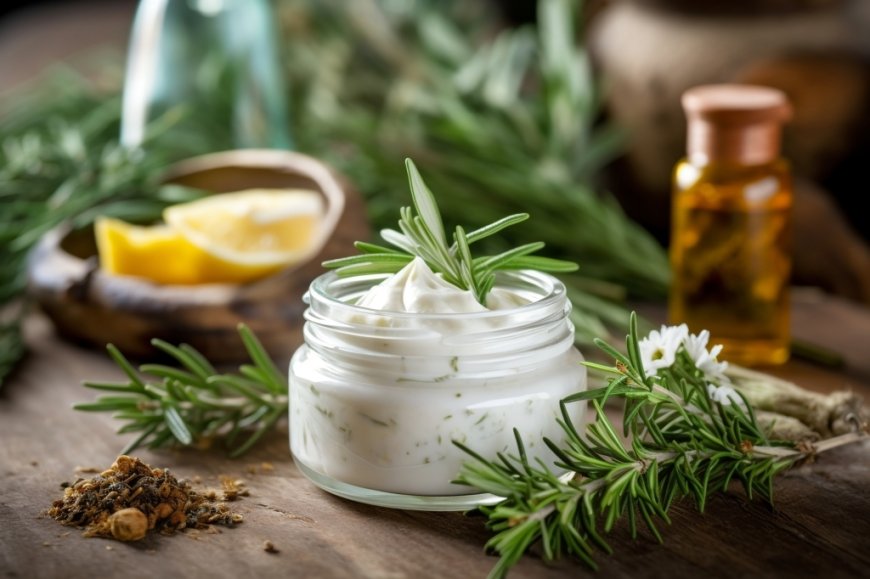Morning vs. Night Skincare Routine: What Really Works for Healthy, Glowing Skin?
Discover the key differences between morning and night skincare routines. Learn expert-backed skincare tips, best products, and how to maximize your skin’s health.

Introduction
Ever wondered why skincare routines differ between morning and night? Many people use the same products day and night, but your skin has different needs depending on the time of day. In the morning, it faces pollution, UV rays, and environmental stressors, while at night, it focuses on repair and regeneration.
So, what’s the best approach to morning and night skincare? This in-depth guide will break down the science behind skincare routines, the right products to use, and expert-backed advice on how to keep your skin looking its best 24/7.
Morning Skincare Routine: Protection & Hydration
Your morning skincare routine is all about protecting your skin from external damage. Throughout the day, your skin is exposed to UV rays, dirt, pollution, and free radicals, which can lead to premature aging, dullness, and breakouts.
Step-by-Step Morning Routine
1. Cleanser: Refresh & Remove Overnight Oils
Why? Even if you washed your face at night, your skin produces oils and accumulates bacteria while you sleep. A gentle morning cleanse helps start the day fresh.
Best Ingredients for Morning Cleansing:
- Oily Skin: Salicylic acid or gel-based cleansers to remove excess oil
- Dry Skin: Hydrating cleansers with hyaluronic acid or ceramides
- Sensitive Skin: Fragrance-free, mild cleansers (American Academy of Dermatology)
✅ Pro Tip: Avoid using harsh cleansers in the morning to prevent stripping your skin’s natural barrier.
2. Toner: Balance & Prep Your Skin
Why? A toner helps restore your skin’s pH balance after cleansing and prepares it for the next steps.
Best Morning Toners:
- Oily Skin: Witch hazel or niacinamide-based toners
- Dry Skin: Rose water or aloe vera for hydration
- Combination Skin: Alcohol-free balancing toners
✅ Pro Tip: Apply toner with a cotton pad or gently pat it into your skin with your hands.
3. Antioxidant Serum: Fight Free Radicals
Why? Vitamin C is a must in the morning because it helps protect against environmental damage, brightens skin, and boosts collagen production.
Best Morning Serums:
- Vitamin C – Brightens skin and fights oxidative stress
- Niacinamide – Reduces redness and controls oil production
- Hyaluronic Acid – Keeps skin hydrated and plump
? Research shows that combining Vitamin C with sunscreen boosts sun protection. (National Library of Medicine)
4. Moisturizer: Lock in Hydration
Why? Hydration is key to maintaining a healthy skin barrier. Even oily skin needs a lightweight moisturizer to prevent excessive oil production.
Best Morning Moisturizers:
- Oily Skin: Gel-based, oil-free formulas
- Dry Skin: Cream-based, deeply hydrating ingredients like ceramides
- Sensitive Skin: Fragrance-free, hypoallergenic options
✅ Pro Tip: If your moisturizer contains SPF, you can skip the next step—but dermatologists recommend using a separate sunscreen for better protection.
5. Sunscreen: The Most Important Step
Why? 90% of premature aging comes from UV exposure. A broad-spectrum sunscreen protects against sun damage, wrinkles, and hyperpigmentation. (American Academy of Dermatology)
Best Morning Sunscreens:
- SPF 30 or higher
- Mineral-based sunscreens with zinc oxide for sensitive skin
- Lightweight, non-greasy formulas for daily wear
✅ Pro Tip: Apply two fingers' worth of sunscreen on your face and neck, and reapply every two hours.
Night Skincare Routine: Repair & Rejuvenate
At night, your skin works hard to repair itself, making it the perfect time to use active ingredients that promote cell turnover and renewal.
Step-by-Step Night Routine
1. Double Cleansing: Remove Makeup & Impurities
Why? Throughout the day, your skin accumulates dirt, oil, and sunscreen. A double cleanse ensures a deep clean.
How to Double Cleanse:
- Oil-Based Cleanser – Dissolves makeup, sunscreen, and excess oil
- Water-Based Cleanser – Removes sweat, bacteria, and remaining impurities
✅ Pro Tip: If you don’t wear makeup, a single gentle cleanse is enough. (Harvard Health)
2. Exfoliation (2-3 Times a Week): Unclog Pores & Boost Radiance
Why? Exfoliation removes dead skin cells, revealing brighter and smoother skin.
Best Exfoliants:
- AHAs (Lactic Acid, Glycolic Acid) – Best for dry & aging skin
- BHAs (Salicylic Acid) – Best for oily & acne-prone skin
✅ Pro Tip: Don’t exfoliate daily—it can damage your skin barrier.
3. Treatment Serums: Repair & Restore
Why? The nighttime is the best time to use active ingredients that boost collagen, reduce pigmentation, and fight aging.
Best Nighttime Serums:
- Retinol – Boosts collagen & reduces fine lines (Skin Cancer Foundation)
- Hyaluronic Acid – Deeply hydrates & plumps the skin
- Peptides – Strengthens the skin barrier & repairs damage
✅ Pro Tip: Start with retinol once or twice a week and increase gradually. Always follow with moisturizer.
4. Night Cream or Moisturizer: Seal in Hydration
Why? Your skin loses more moisture overnight, so a rich, nourishing moisturizer helps keep it plump and smooth.
Best Night Moisturizers:
- Dry Skin: Thick, occlusive creams with ceramides
- Oily Skin: Lightweight, non-comedogenic gels
- Aging Skin: Anti-aging night creams with peptides
✅ Pro Tip: Look for fragrance-free options to avoid irritation.
Final Thoughts: Morning vs. Night Routine – Which Matters More?
Both routines play an important role in healthy, radiant skin:
- Morning Routine = Protection & Hydration
- Night Routine = Repair & Renewal
Skipping either can lead to premature aging, breakouts, and dullness. By using the right products at the right time, you can maximize your skin’s health and glow.
For dermatologist-approved skincare brands, check out this expert list to find the best options for your skin type.
What's Your Reaction?
 Like
0
Like
0
 Dislike
0
Dislike
0
 Love
0
Love
0
 Funny
0
Funny
0
 Angry
0
Angry
0
 Sad
0
Sad
0
 Wow
0
Wow
0



















































